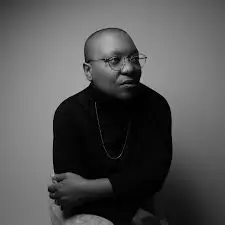-
Recently Browsing 0 members
- No registered users viewing this page.
-
Latest Activity
-
By gabrielomachado · Posted
Iron Maiden / Slayer / Gojira Falling In Reverse ____ Sleep Token / Deftones / Spiritbox Lamb Of God ____ Linkin Park / Korn / Pierce The Veil Mötley Crüe -
clearly went cheap knowing coldplay would sell it out alone who cares tbh was £35. anyone else is a bonus
-
By steviewevie · Posted
3. Progressive realism On the afternoon of 20 January, amid the splendour of Guildhall – the oldest surviving secular building in the City of London – David Lammy delivered the keynote address at the Fabian Society conference. The shadow foreign secretary’s speech mostly attracted media attention because of repeated interruptions by pro-Palestinian protesters. But it was worthy of greater consideration. Lammy used the speech – influenced by his new political adviser Ben Judah (the author of This Is London and This Is Europe) – to unveil what he considered to be a new doctrine: “progressive realism”. He vowed to combine the best of two former Labour foreign secretaries: Ernest Bevin – the realist who served as Clement Attlee’s foreign secretary and co-founded Nato – and Robin Cook, the Blair-era idealist who promoted foreign policy with an “ethical dimension” (and later resigned from the cabinet over the 2003 Iraq War). What defines Lammy’s approach? “Realism is a foreign policy philosophy that takes the world as it is, not as you would wish it to be,” he told me. “It acknowledges that the world is a difficult, tough and often tragic place that forces you towards hard choices.” (Barack Obama, Lammy’s friend of two decades, spoke often of “tragedy”, or tragic realism, in the twilight of his presidency.) Lammy continued: “Realism is very alive to the balance of power as a question and to the relative weight of international players. But typically its practitioners have only used it to accumulate power for power’s sake, like Henry Kissinger, for example. “Where progressive realism is different is that you’re using that philosophy in order to put your advantage behind progressive causes such as the international rule of law and climate diplomacy.” Such an approach echoes that of Starmer himself: a human rights lawyer who pursued progressive ends and came to see the value of realist means. From 2003 to 2007, he served as a human rights adviser to the Northern Ireland Policing Board, the body founded to oversee the Police Service of Northern Ireland (the replacement for the sectarian Royal Ulster Constabulary). In an interview with the New Statesman in 2020, Starmer recalled how this experience changed his perspective on the state. “That really exposed me, for five years, to working on the inside of an organisation… Some of the things I thought that needed to change in police services we achieved more quickly than we achieved in strategic litigation… I came better to understand how you can change by being inside and getting the trust of people.” Labour’s foreign policy today reflects a similar realism. Rather than haranguing Republicans, Lammy has engaged with them in preparation for a potential Trump presidency. As my colleague Andrew Marr recently reported, the shadow foreign secretary has met the former secretary of state Mike Pompeo, the Hillbilly Elegy author and Ohio senator JD Vance (a potential vice-president), and Trump’s former national security adviser Robert O’Brien. This hard-headed diplomacy is mirrored in Labour’s approach to China, the Middle East and Europe. “Ernest Bevin didn’t need to cooperate with the Soviet Union on climate change or AI,” Lammy told me. “But in the 21st century, when it comes to China, being a realist means that you’ve got to include these progressive causes in your diplomatic approach and to seek to work where possible – and it may not always be possible – with China on them.” In the Middle East, Lammy has vowed to “shake the hands we need for peace” – he has learned from the trajectory of Biden who pledged to make Saudi Arabia a “pariah” in 2019 only to bump fists with Crown Prince Mohammed bin Salman three years later. When Israel was recently attacked by Iran, it was not only Jordan but, reportedly, Saudi Arabia and the United Arab Emirates that helped defend it. If peace in the Middle East is ever to be achieved, the Gulf states will be central to it. In Europe, Labour would pursue a new EU-UK defence and security pact, one with a far wider remit than Nato, which could encompass agreements on migration, climate change and critical raw materials. The emphasis on the supply of goods denotes an awareness of how the boundaries between foreign and domestic policy have been blurred. Securonomics must be pursued abroad rather than merely at home. “Take the supply chain of an electric vehicle,” Lammy told me. “Where’s the cobalt coming from? Where’s the lithium? How is it being traded? What kind of carbon taxes is it subject to? What markets is it going to? What standards and regulations is it operating under? Every single step of the way, there’s a job for the foreign secretary. “Progressive realism is the expression of Keir and Rachel’s politics abroad. It is the strategic compass to help navigate the world in order to achieve the renewal of the UK.” Lammy, once a standard-bearer for Remain, emphasised that he did not regard a new European security pact as a back door to EU membership. “It doesn’t mean that we want to rejoin the EU, the single market or the customs union – the constitutional question is closed,” he told me. Critics of progressive realism argue that it seeks to evade a choice that is ultimately inescapable: should foreign policy be shaped by values or interests? Its progressivism is either too unrealistic or its realism is too unprogressive. But after years of boosterism from Conservative foreign secretaries, Lammy’s approach is at least an attempt to grapple with the UK’s relative decline. “We don’t appreciate how the world has changed since 1997 in Britain,” he told me. “In 1997, the UK still administered a major Chinese city as a colony [Hong Kong]; the British economy was larger than the Indian and Chinese economies combined. “Being a foreign secretary in the 21st century is as much about telling a story about the world to Britain as a story about Britain to the world.” The essay question for British politics is no longer whether Starmerism exists, but whether it will work. Should it win power, Labour will have one of the worst inheritances of any British government: a stagnant economy, collapsing public services, and the highest national debt as a share of GDP since the early 1960s. At every turn it will face daunting spending pressures: the NHS, education, defence and the green energy transition. In opposition, it is possible to elide such dilemmas, but to govern is to choose. Across the West, Labour’s centre-left sister parties are becalmed: Biden is in danger of losing the presidency to Donald Trump; Scholz’s Social Democrats are polling behind the hard-right Alternative for Germany and Anthony Albanese’s Australian Labor may be evicted from office after just one term. Labour’s own history is replete with examples of the party being overwhelmed as it struggles to reconcile principle and power: Ramsay MacDonald and the 1931 split over austerity; Jim Callaghan and the 1976 IMF bailout; Gordon Brown and the 2008 financial crisis. Much of the “decade of national renewal” promised by Keir Starmer depends on higher economic growth. How will he and Rachel Reeves respond if growth disappoints? Will they grow more radical in office or less? The answers to these questions are, for now, unknowable. But to claim Starmerism is a vacuous project – concerned only with winning – or that it is simply a New Labour tribute act is no longer credible. It will succeed or fail on its own terms.
-
Latest Festival News
-
Featured Products
-

Monthly GOLD Membership - eFestivals Ad-Free
2.49 GBP/month
-
-
Hot Topics
-
Latest Tourdates
















Recommended Posts
Join the conversation
You can post now and register later. If you have an account, sign in now to post with your account.